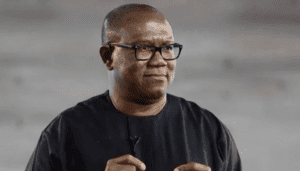
Can the problem of Nigeria be solved? (Part 2)
By Olamirewaju Olatunde
The current poverty rate is defined by two means: the national poverty line and the international poverty line. The national poverty line is based on the country’s own standards of what constitutes a minimum level of consumption or income, while the international poverty line is based on a common threshold of $1.90 or $5.50 a day at 2011 international prices. Based on these two factors, The World Bank has projected the poverty rate in Nigeria will decline to 37 percent (based on previous stats) in 2023 using the national poverty line, but will still leave 84 million Nigerians in poverty.
We are doing a good job since the number of people living in poverty has declined, but there are still 84 million people still living with this cancer which tells us that we still have to do more. Our goal as a nation is to totally eradicate poverty- No poverty, so there is a need for that number to be removed and that can only be done by looking at what is wrong in the economy that is leading to this.
One of the solutions to this problem is redistribution of income. Nigeria has employed a progressive tax system which is really helpful and should help generate a lot of income to the government. Government should increase the rate of taxes more on the monopolists in the nation because they hold the highest chunk of the money. Eventually, this increases the total income of the government.
Now the question is how should the government allocate this income to help eradicate poverty. A bill can be passed that a certain percentage of money should be spent on structural development and security. This is how the government should use the income. Building infrastructures, roads, pipelines, offering needs of the masses at a subsidised rate helps to eradicate poverty, but security is one of the major problems of Nigeria and if this is not addressed first poverty will still strive. A quick overview of how to solve security issues.
How do we solve the security issue in Nigeria?
First of all, we are not a state that spends so much on security which makes our security system vulnerable to terrorist. Scouting out countries that spend a huge chunk of their budget on security and make a pact with them to supply us with ammunition and technologies that would keep track of everywhere in the country (easy to track down criminals.) At the end of the day, Agriculture will rise back to the peak thereby raising the total amount of raw materials, which would help increase GDP and help increase supply which means food can be obtained cheaper which mean that poverty will decline
Building infrastructures – This would help solve the problem of unemployed youths that do not have a job. In the sense that the new infrastructures such as manufacturing companies built in place will have to be managed by some people which would help raise them above the international rate of poverty and this would help offer jobs to unemployed people thereby leading to a case of full employment in the economy.
Building roads, pipeline, social amenities – The building of these things means that the supply increases which means people can afford it easier thereby increasing their standard of living and thereby reducing the 84 million people, but the government cannot manage the money spent by each household, so how will each individual be able to manage their income to ensure good living. Check out my blog for tips on poverty: www.olatundedanielblog.com. To be continued…



